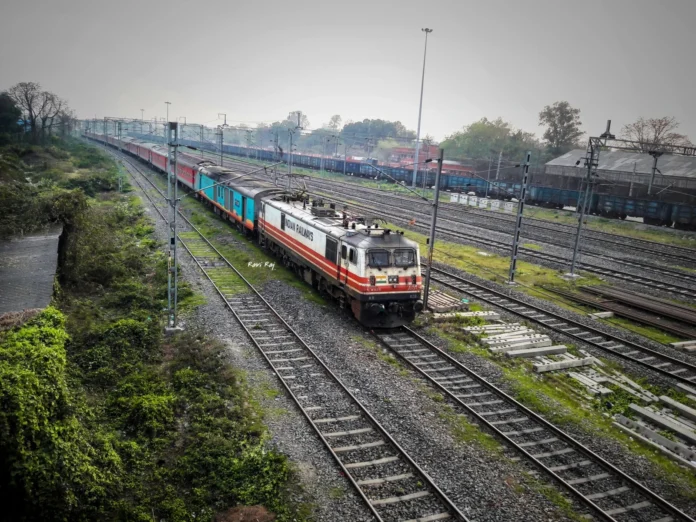The Assam Cabinet has taken significant steps to enhance the state’s infrastructure and education sectors, marking a pivotal moment for railway development and educational opportunities. In a recent meeting, the Cabinet approved the allocation of land for the doubling of railway tracks in the Azara-Kamakhya section. This development aims to boost the efficiency and capacity of rail services, accommodating the increasing demand for transportation in the region.
The decision to double the railway tracks reflects the government’s commitment to improving connectivity and promoting economic growth. Doubling the tracks will not only enhance the speed and frequency of train services but also ensure a safer and more reliable travel experience for commuters. Assam’s geographical landscape poses various challenges for transportation, and the government’s initiative to expand railway infrastructure aims to address these issues head-on.
The Azara-Kamakhya section is vital for both passenger and freight transport, connecting significant urban centers and facilitating trade and commerce. With the approval of this project, the government envisions reducing congestion on existing tracks and minimizing delays in train schedules. This investment in rail infrastructure comes at a crucial time when the state is witnessing an increase in population and economic activities, necessitating a more robust transportation network.
In addition to the railway developments, the Cabinet also took proactive measures in the education sector by regularizing teacher appointments. The decision to formalize these appointments aims to enhance the quality of education in the state. Regularized positions provide job security for teachers, fostering a stable learning environment for students. Education plays a vital role in shaping the future of Assam, and the government’s focus on ensuring qualified teachers is a step toward elevating educational standards across the state.
The Cabinet also sanctioned funds for polytechnic institutions, which will significantly enhance technical education in Assam. By investing in polytechnics, the government aims to equip students with the necessary skills and knowledge required in today’s competitive job market. This initiative aligns with the broader goal of promoting vocational education and encouraging self-reliance among the youth. The emphasis on technical skills is crucial for fostering innovation and supporting various industries in the state.
To further support students, the Cabinet approved the provision of bicycles for students. This initiative not only aims to promote eco-friendly transportation but also encourages physical activity among young learners. Many students in rural and semi-urban areas face challenges in accessing educational institutions due to the lack of reliable transportation. By providing bicycles, the government seeks to alleviate these difficulties and ensure that students can commute to school safely and efficiently.
The decisions made by the Assam Cabinet highlight a comprehensive approach to governance, focusing on infrastructure development, education, and youth empowerment. The emphasis on railway expansion reflects an understanding of the importance of efficient transportation in fostering economic growth and improving the quality of life for residents. At the same time, the commitment to regularizing teacher appointments and enhancing technical education demonstrates a proactive stance towards improving educational standards and addressing unemployment among the youth.
These initiatives are expected to have a long-term impact on the state’s development. As railway infrastructure improves, it is likely to attract investments and boost trade, while the focus on education and skill development will prepare the workforce for future challenges. By addressing these critical areas, the Assam government is taking significant strides toward creating a more prosperous and sustainable future for its residents.
Overall, the Assam Cabinet’s recent decisions mark a significant step forward in addressing key challenges faced by the state. The commitment to doubling railway tracks in the Azara-Kamakhya section, regularizing teacher appointments, funding polytechnic institutions, and providing bicycles for students showcases a holistic approach to governance. These initiatives aim to create a more connected, educated, and empowered society in Assam, paving the way for a brighter future for all its residents.


